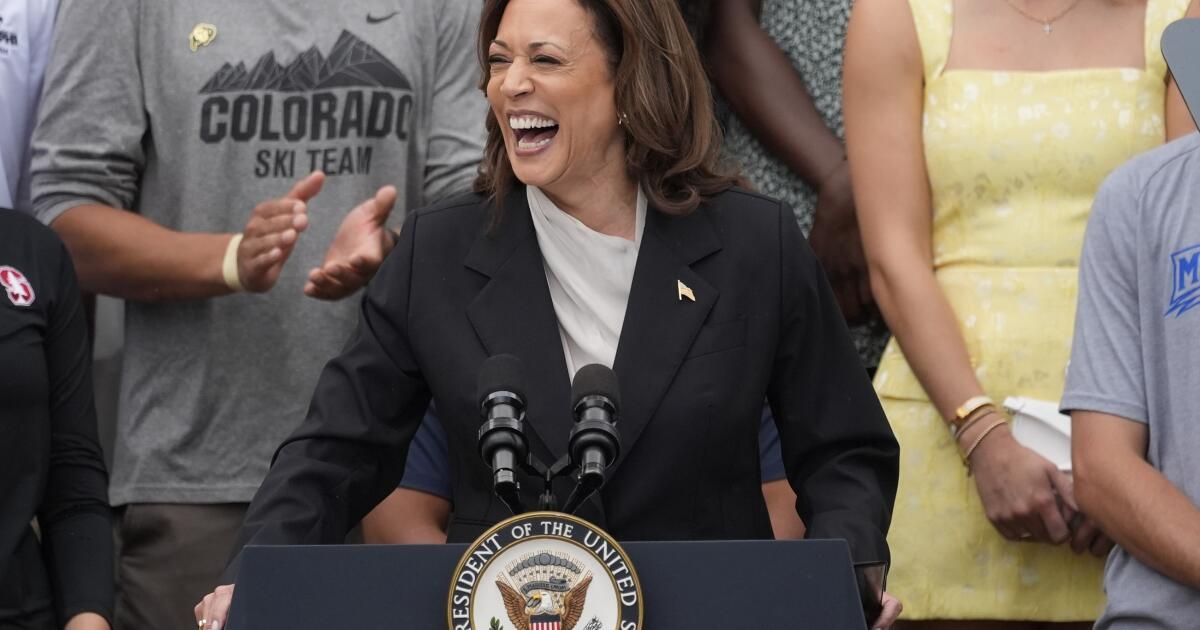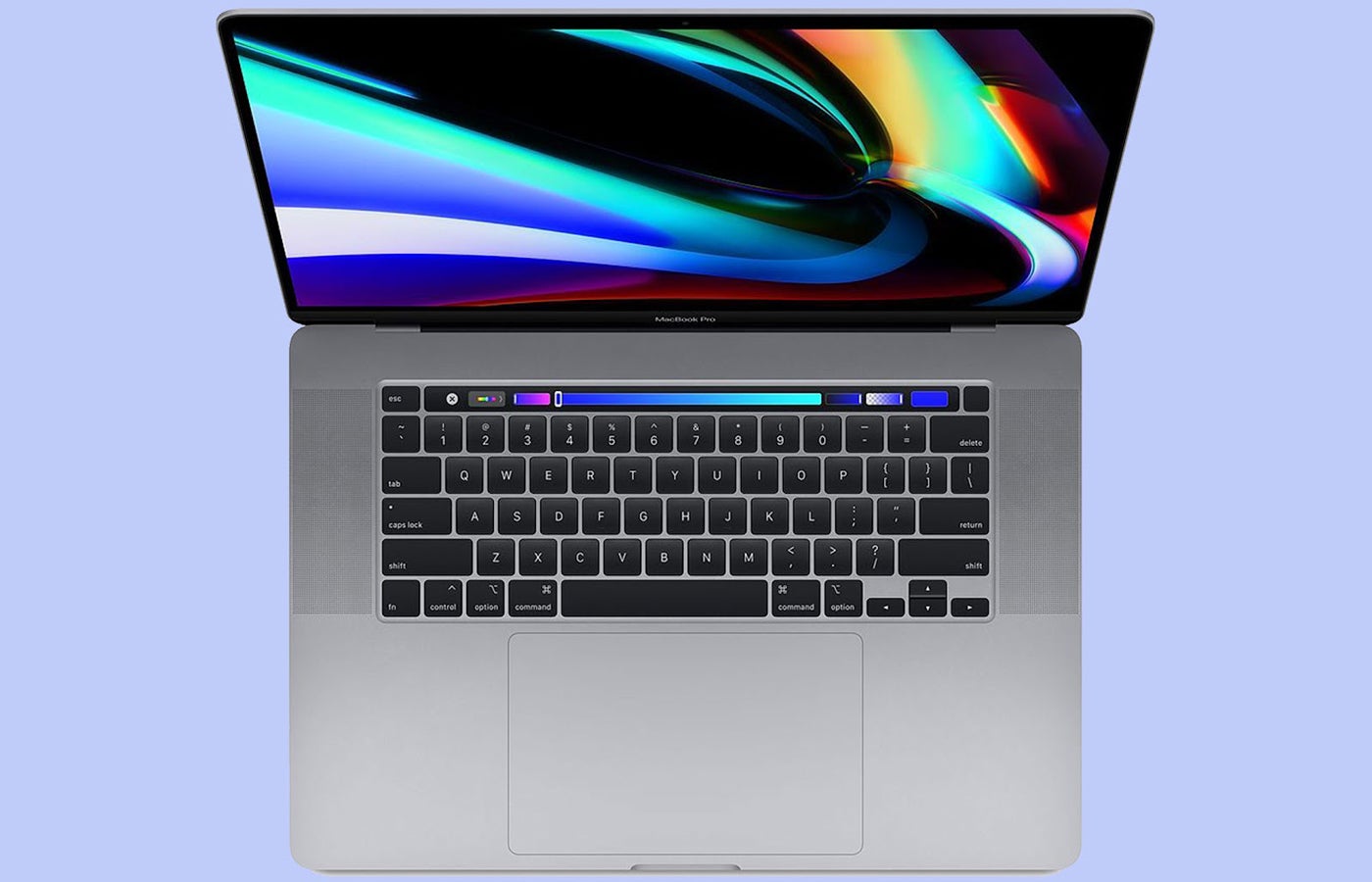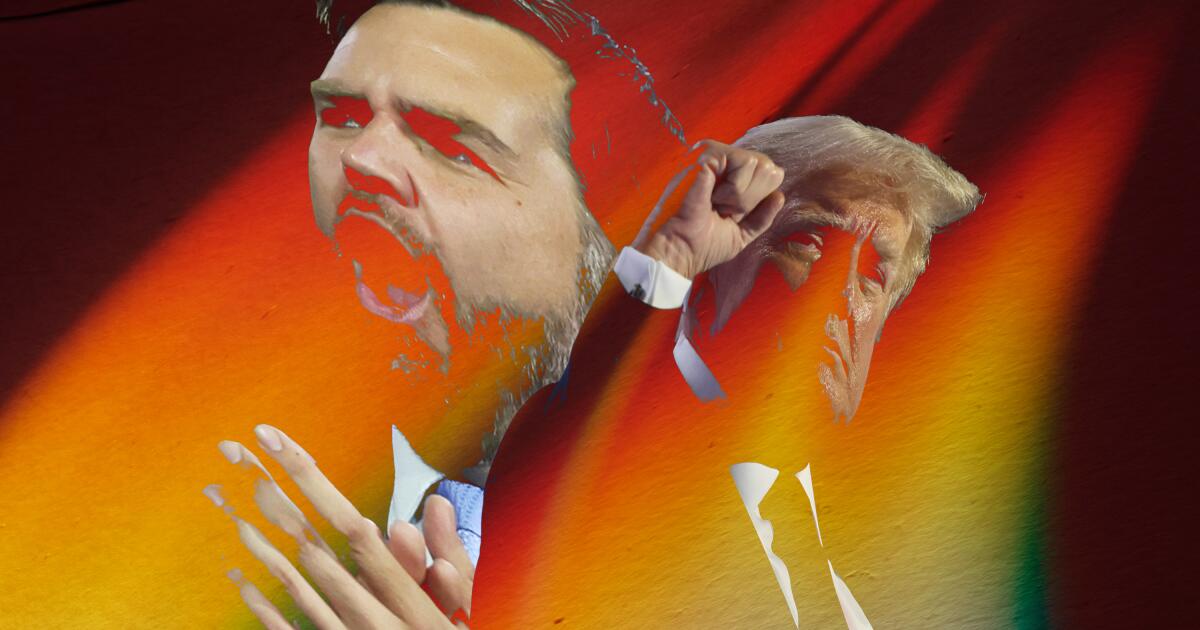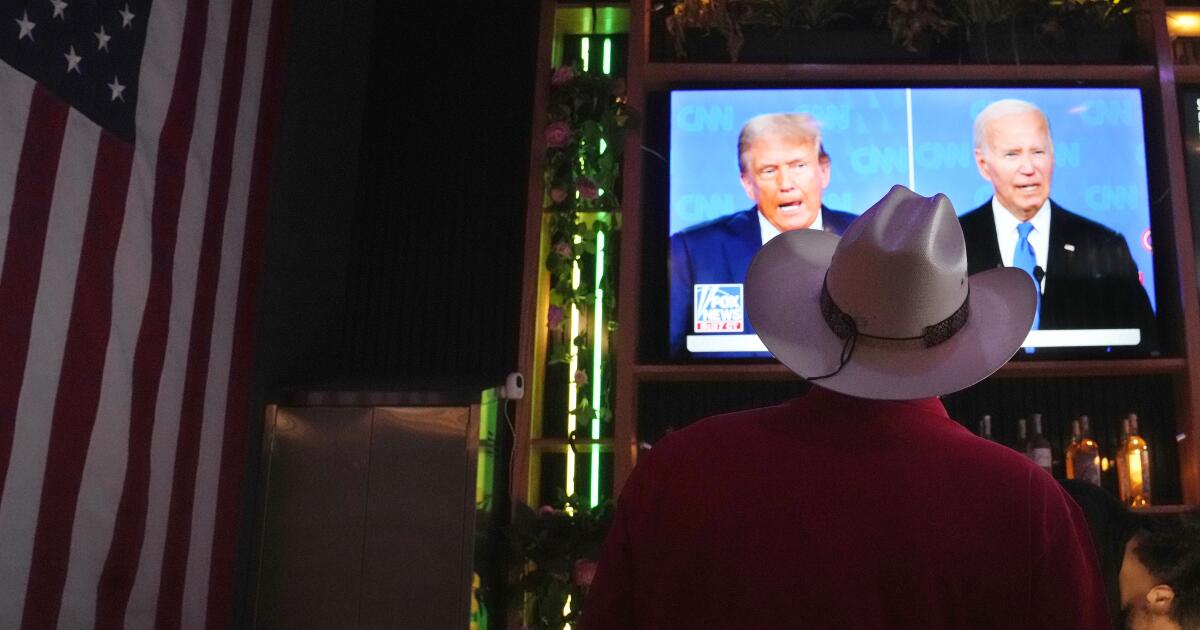In her 2019 memoir, “The Truths We Hold,” Kamala Harris wrote: “Words are incredibly powerful, and the people in power, whose words can travel the farthest and the fastest, have an obligation, a duty, to say them accurately and wisely.”
She's right. Harris has less than four months to win the trust of Americans and accustom them to a completely unfamiliar idea: a black woman occupying the highest political office in the country. And the most powerful tool in her arsenal is her words.
Harris's coverage during her vice presidency has repeatedly ridiculed her speech. Her rival, presidential candidate Donald Trump, often mocks her speaking style. Right-wing pundits refer to her remarks as “word salad.” In the case of the viral phrase “coconut tree,” her detractors called her language “bizarre” and “baffling,” even though the quote inspired a wave of memes.
In the face of all this, some might say that Harris needs to work on her words, using them to portray herself as a powerful and capable leader, not just a punchline.
They would be wrong.
American society closely scrutinizes leaders, particularly women of color, and places them somewhere between “dominance” and “warmth.” Some leaders choose to emphasize dominance: They fold their arms, reference power and competence, and rarely smile. Harris’s choice to go for warmth—her quick laugh, seemingly easy smile, and references to well-being and her family in what has been called a “self-help” style—is a brilliant strategy that may win her the presidency. This warmth helps her avoid the backlash that women, and women of color in particular, inevitably face for demonstrating power.
Women leaders must walk a fine line between forceful leadership and pleasant kindness. You don’t have to be emotional, but you don’t have to be cold, either. You have to take charge, but you don’t have to be bossy. This impossible balancing act (brilliantly described in the famous “Barbie” monologue) is an impossible test that many women leaders, including Hillary Clinton, fail to meet. As a woman of color, Harris faces an even higher bar — and she probably knows it.
In a recently published study, I asked dozens of black female managers to tell me about their approach to leadership. First, I asked each to imagine that she was the first and only black woman in a high-profile leadership position. Then I asked them to describe whether they would seek to display dominance or warmth in the leadership style they adopted. And how did they think others would react?
These managers said they would be more likely to adopt a warm leadership style and would expect more punishment, including negative reactions, for domineering leadership. White women said the opposite. They said they would be less likely to adopt a warm leadership style and more likely to expect punishment for warm leadership.
Michelle Obama, one of the most well-known black women in the world, has alluded to the backlash black women can face for their dominant position. During her 2018 book tour, she referenced Sheryl Sandberg’s famous mantra, “lean in,” joking, “That shit doesn’t work all the time” — a comment for which she received (you guessed it) backlash.
Do Black women leaders have a right to expect punishment for being domineering? To find out, I collected 250,000 comments made by hundreds of Black and white members of Congress, including Harris, Elizabeth Warren, Beto O’Rourke, and Barack Obama. Then I collected 18,000 editorials written about these same politicians during their terms in Congress. The more often Black congresswomen used domineering language on the House or Senate floor (words like “assertive,” “competitive,” and “strong”), the more often journalists wrote about them using cold language (words like “rude” and “unfriendly”). There was no such backlash against white congresswomen, Black congressmen, or white congressmen.
It’s not just journalists who penalize black women leaders who use dominant language, but voters as well. I asked more than 800 American voters to review the social media profiles of politicians they assumed were real. In reality, the profiles were fake for the purpose of the study. The more a black woman used dominant language in her profile and tweets, the less likable voters rated her. White women who used the same kind of language did not experience such a backlash.
The data is clear: Black women are right to expect and try to avoid backlash. For them, conveying dominance through their speech can be disastrous.
Considering how successful she is, judging Harris as unserious or incompetent because she chooses to project warmth would be foolish. It would also overlook a reality that black women know all too well.
Cydney Hurston Dupree is Associate Professor of Organizational Behavior at the School of Management, University College London. @cydneydupree












